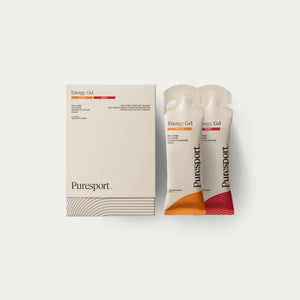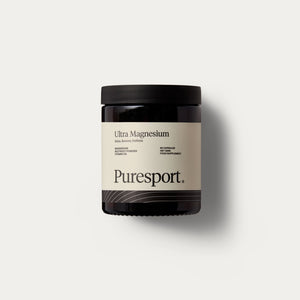Have you ever gotten an intense pain in your stomach because you felt nervous or anxious? There’s more of a link between your mind and your gut than you may know, and we’re going to take a deeper look at it by exploring the gut-brain axis and how CBD interacts with it.
We’ll start by covering the basics of the gut-brain axis before discussing the role CBD plays in influencing it. After that, we’ll cover some other natural supplements that you can take to influence your gut-brain axis. Finally, we’ll go over some FAQs about the gut and the brain.
What is the Gut-Brain Axis?
Your nervous system contains links to your digestive tract, which is why you can feel conditions like gas and indigestion. However, this link between your digestive tract and your nervous system also means that your brain is linked to your digestive system, and mounting scientific evidence shows that what you eat can affect more than just your weight.
The gut-brain axis is a biochemical signalling mechanism which means that your gut’s health can impact your brain’s health and vice versa. This is caused by the microbiota that are present in your food and your digestive system, mainly through the vagus nerve.

As far as nerves go, the vagus is one of the largest that you’ll find between your brain and your gut. The vagus is also partially responsible for the bidirectional nature of the gut-brain axis, as it is capable of sending nerve signals from the brain to the gut but also from the gut to the brain.
Along with the vagus nerve, the gut brain axis is also influenced by neurotransmitters that are produced by the cells in your gut and the chemicals that are produced by your gut biome. All of this comes together to influence your mood and potentially impact your chances of Alzheimer’s and cognitive decline.
Can CBD Influence the Gut-Brain Axis?
Science has recently discovered a direct link between the gut-brain axis and the endocannabinoid system, which is the part of your body that is directly impacted by CBD. This paper goes into how cannabinoids like CBD have shown potential as treatment options for GI (gastrointestinal) diseases and disorders like IBS.
Studies have already shown that CBD is able to improve your gut health, moderating the amount of inflammation that appears in the gut by reducing the body’s cytokine response.
Unlike prescription drugs that are currently used for the purpose, CBD is able to do so without any psychotropic effects.
The study also goes on to show that CBD tinctures were able to help patients deal with inflammation when struggling with ulcerative colitis. The study’s conclusion went on to indicate that the team’s results were promising and that they recommended further study into CBD as an effective anti-inflammatory for the GI tract.
However, research has also shown a more direct link between CBD and the gut-brain axis, with one study going into how CBD capsules could potentially help those with alcohol use disorders. Results showed that CBD’s effects on the gut-brain axis were able to reduce the prevalence of alcohol use disorders in study participants.
Can Other Supplements Influence the Gut-Brain Axis?
While CBD has been scientifically demonstrated to benefit the gut-brain axis, it’s often a good idea to have a well-rounded routine of supplements to remain as healthy as possible. Perhaps you find yourself wondering what other supplements you can take to facilitate the interaction between your gut and your nervous system.
We’re going to take a look at four of the best supplements that you can use to improve your gut health and enhance the signals that it’s sending upstairs through your nervous system. We’re going to take a look at the gut-brain axis benefits of liquorice root, turmeric, ginger root, and turkey tail.
Liquorice Root
Liquorice root, as the name suggests, is the root of the plant that is responsible for producing liquorice. It is a flowering plant that is not related to the fennel and anise families, as is often erroneously deduced through its similar flavour to those two plants. Liquorice root has been used extensively in traditional medicine throughout history.
When it comes to the gut-brain axis, studies have shown that liquorice root can help reduce indigestion than most over the counter products. Another study explored whether or not liquorice root is able to help treat peptic ulcers, finding that it can reduce the presence of the bacteria that is often responsible for ulcers.
Turmeric
One of the key ingredients in any good curry is also the key to a long and healthy life, turmeric is a spice that can directly affect your gut-brain axis. One thing to consider about turmeric is that it usually has low bioavailability, making it difficult for your cells to absorb, but this can be solved by taking your turmeric supplement with a black pepper supplement.
Research has been conducted on curcumin’s (the active ingredient in turmeric) ability to improve gut health, particularly by improving conditions for beneficial gut microbiota. This review goes over how curcumin and its metabolites are responsible for reducing the prevalence of harmful bacteria and fostering the growth of preferred strains.
Ginger Root
Ginger root can be consumed in a few different ways, including fresh or dried up, ground and used as a supplement. Most of the health benefits of ginger come from gingerol, which is both an antioxidant and anti-inflammatory. It has also been demonstrated to improve gut health.
Ginger root has been shown to help treat indigestion in people with functional dyspepsia, a condition in which patients suffer from unexplained indigestion. The study found that participants who had taken ginger root were able to digest soup an average of four minutes faster than the control group.
Turkey Tail
Turkey tail is a polypore mushroom with the scientific name Trametes versicolor, meaning “of many colours.” Amongst the many fungi with positive health benefits, turkey tail stands out as one of the best options for maintaining the health of your GI tract.
For example, research has shown that turkey tail is able to reduce the prevalence of e. coli bacteria in test subjects while also spurring on the growth of helpful digestive bacteria.
Can Gut Problems Affect the Brain?

Yes. Gut problems affect the brain by making you feel mentally and physically stressed. If left untreated, it can lead to severe health issues. Here are a set of ailments that can occur if you’re experiencing gut problems:
- Nausea
- Constipation
- Diarrhoea
- Loss of appetite
- Indigestion
In scientific terms, your gut is called the enteric nervous system (ENS). The ENS consists of 2 thin layers with over 100 million nerve cells. These nerves extend from your oesophagus to your rectum and line up your gastrointestinal tract. If your gut bacteria isn’t producing at a normal rate, chances are it will lead to neurological issues in your brain in the long term.
The function of the ENS is to inform the gut-brain axis within your body. To explain, the vagus nerve is used to send signals to both your gut and brain. However, once gut problems are present, they can lead to gut-brain axis symptoms such as stress and depression.
Plus, your gut controls the amount of inflammation your body experiences. Your gut microbiota decides what stays in your body and what is excreted. When gut problems are present, your brain won’t be able to process what’s going on, which can lead to issues such as Alzheimer’s disease.
Did you know that your gut produces millions of microbes that affect the brain? The gut microbiota creates short fatty acids (i.e., acetate, butyrate, and propionate), affecting your brain’s appetite and overall functionality.
In this study, having foods that have propionate will reduce your brain activity. Consuming butyrate helps create a barrier between the blood and your brain. Thus, taking care of your gut can prevent issues from occurring with your blood and brain tissues.
To protect your brain, you’ll also have to protect your gut. Using gut-brain axis supplements such as CBD capsules will help soothe the gut and the mind. With consistent usage, you’ll find that your gut and brain are better at producing bile, a crucial component in regulating your health.
Can Anxiety Affect the Gut-Brain Connection?
Anxiety and the gut-brain connection are directly correlated. This means that the more psychological stress you face, the less healthy the gut-brain connection will be. Doctors discovered that anxiety, depression, mood swings, etc., can lead to more digestive problems if left untreated through advancements in health.
Further, chemical imbalances within the gut and inflammation will increase the chance of mental health issues. Once the toxins are released through your intestines, it creates an inflammatory response within your body.
This leads to an imbalanced group of microbiomes and more inflammatory effects. Having a leaky gut will reduce the body’s effectiveness at absorbing nutrients and hinder your sleep schedule. This creates more stress through the brain and body and will make you more anxious than usual.
Remember, both your brain and gut are sensitive to your emotions. When feeling anxious, you’ll start to feel the fog in your brain and a stirring sensation in your bowels. Both the gut and brain are communicating at this point and plan on making a fight-or-flight response. So you’ll have to check both your mind and your gut’s heath to reduce feelings of anxiety.
Ongoing gut ailments such as irritable bowel syndrome (IBS) further increase problems within your gut and brain. At this stage, the microbiomes are damaged, making it harder for your body to perform correctly.
You’ll have to eat foods that promote healthy microbes to prevent this issue. Avoid eating food with negative microbes as it will add stress to your gut and mind. Foods such as legumes, whole grains, vegetables, and fruits will help lower your anxiety levels and keep your gut under control.
Also, you can reduce anxiety through behavioural methods. Studies show that taking cognitive behavioural therapy and counselling can help manage mild to severe anxiety. Thus, leading to a better gut-brain connection and fewer mental health issues in the long term.
Can CBD Help the Gut-Brain Connection?
CBD can improve the gut-brain connection, but you'll need a sustainable diet and lifestyle to go alongside it. For instance, having a poor diet, limited physical movements, toxic self-talk, and negative relationships will minimise the CBD's effectiveness. So always try to have a balanced life when consuming CBD to achieve optimal results: lead an active lifestyle, form genuine human connection, and prioritise rest and recovery.
To get the most benefit, you'll need to exercise regularly, establish a healthy whole food diet, and limit eating processed foods.
Additionally, add in fermented foods such as kefir, sauerkraut, and kimchi. Keeping your digestive health in good condition will lead to a positive gut-brain connection and better health in the long term.
The CBD has cannabinoids that interact with the CB-1 receptors when in use. This reduces leaky gut feelings by preventing inflammatory lipopolysaccharides from leaving the body. As a result, the gut feels less inflamed and will start to operate on normal levels.
CBD works with the CB-2 receptor by increasing or decreasing gut motility. This helps by lowering the chances of constipation and diarrhea. CBD can improve the regularity within your gut, which helps the brain continue to function and enhance your mental state.
In conjunction, the CB-1 and CB-2 receptors work together to optimize your body's gut-brain connection. It gives your body the feeling of being "satiated," which helps relax the gut and aids in weight loss.
And it helps with reducing the TNF Alpha expression, a cytokine that damages the cell growth, cartilage, and bone quality throughout the body. So using CBD will help your body stay well equipped against cytokines and other threats to your physical and mental wellbeing.
By consuming CBD products, you're giving your body the nutrition it needs to enhance your ECS receptors. This makes the gut and brain connection more sufficient and better suited to withstand external damage.







